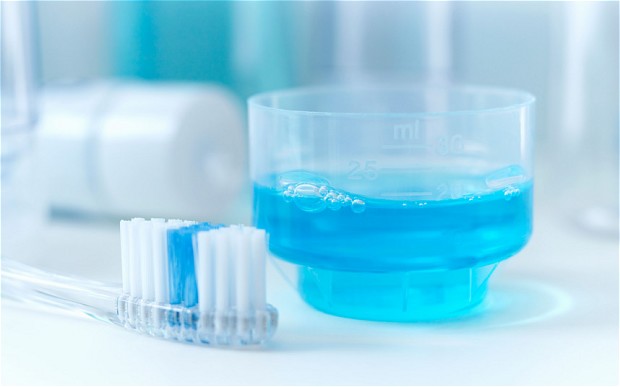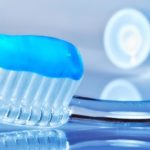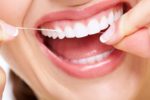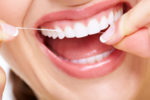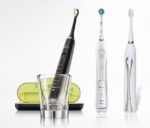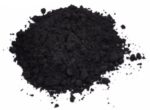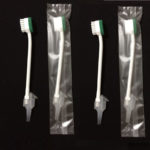Proper oral hygiene is extremely important for the health of your teeth and gums. Only by regular and proper oral hygiene, satisfactory control of the plaque and prevention of plaque-caused diseases: dental caries, gingivitis and periodontitis can be achieved. The aim of all measures of oral hygiene is to remove as much plaque and postpone its re-creation for the longest period of time possible.
Antiseptic mouthwash is useful as an additional means of maintaining oral hygiene, but can not replace brushing. All mouthwash, no matter how strong they are, have very limited effect on the bacteria located within plaque. Therefore, it is always necessary to remove plaque mechanically by brushing, and only then use mouthwash.
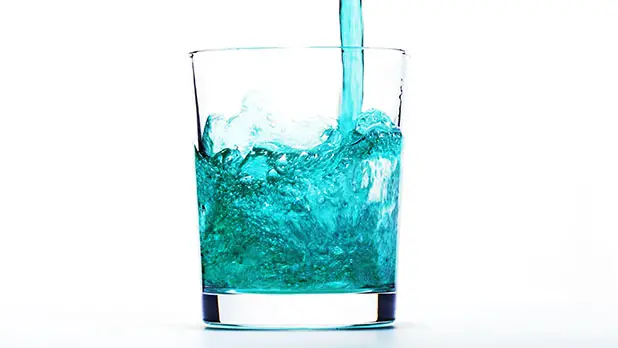 The goal of the mouthwash is to remove bacteria that remain after brushing and slowing re-formation of plaque. By reducing the number of bacteria, bad breath is also prevented, although that is actually a side effect of mouthwash, not their main purpose. Read our mouthwash for bad breath review to find out best product that can help in that regard.
The goal of the mouthwash is to remove bacteria that remain after brushing and slowing re-formation of plaque. By reducing the number of bacteria, bad breath is also prevented, although that is actually a side effect of mouthwash, not their main purpose. Read our mouthwash for bad breath review to find out best product that can help in that regard.
The unpleasant odor in the mouth may be due to poor oral hygiene, dental plaque or food debris on the rough surface of the tongue, by which decay sulfur odorous compounds are formed.
Bacteria from plaque and those that are on the surface of the tongue, break down food remains and contribute to the development of sulfur compounds, methyl mercaptan and hydrogen sulfide, which are responsible for the unpleasant odor from the mouth.
 Bad breath is also the result of the disease in the oral cavity, such as gingivitis, periodontitis, fistulas and ulcers. Moreover, systemic diseases such as respiratory or digestive tract ones, sinus infection, pharyngitis or tonsillitis, renal and diabetes can cause bad breath. If systemic disease is the cause of halitosis, it should be treated. Read more about Best Mouthwash For Bad Breath. For strong anti-cavity protection best fluoride mouthwash is recommended.
Bad breath is also the result of the disease in the oral cavity, such as gingivitis, periodontitis, fistulas and ulcers. Moreover, systemic diseases such as respiratory or digestive tract ones, sinus infection, pharyngitis or tonsillitis, renal and diabetes can cause bad breath. If systemic disease is the cause of halitosis, it should be treated. Read more about Best Mouthwash For Bad Breath. For strong anti-cavity protection best fluoride mouthwash is recommended.
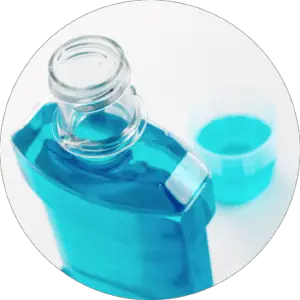 In people with dental implants, mouthwash markedly reduces plaque and gingivitis and thus maintains the health of the implants. After surgical procedures in the oral cavity rinsing with mouthwash lowers inflammation, which shows a positive effect on wound healing.
In people with dental implants, mouthwash markedly reduces plaque and gingivitis and thus maintains the health of the implants. After surgical procedures in the oral cavity rinsing with mouthwash lowers inflammation, which shows a positive effect on wound healing.
Mouthwash made by using essential oils (eg. Listerine) have no side effects, they are harmless and safe for use in the long-term daily use, while waters on the basis of chlorhexidine should be used only as recommended by the dentist because they can stain your teeth and tongue. This chemical substance kills the bacteria that are dangerous to our gums.
[thrive_posts_gallery category=’64’ title=”Related Articles” no_posts=”6″ filter=”popular”]